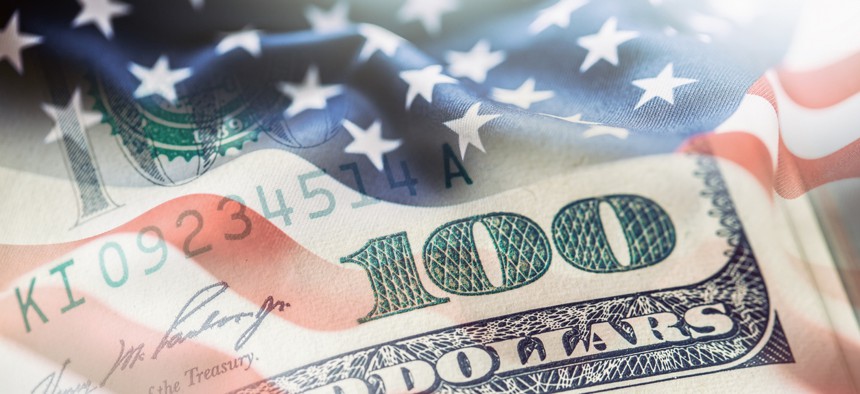
iStock.com/MarianVejcik
Infrastructure Package Furthers Made-in-America Efforts
Also, the Office of Management and Budget has started making public the waivers to domestic preference laws.
The $1.2 trillion infrastructure package enacted last week includes several provisions to expand the Biden administration’s initiatives to support American manufacturing through federal procurement.
The policies in the Infrastructure Investment and Jobs Act seek to “expand domestic preference procurement policies applicable to federal financial assistance programs for public works infrastructure; increase the domestic component content requirements of products and construction materials sold to the federal government under the Buy American Act; and provide transparency into governmental contracting decisions related to domestic sourcing,” Dustin Painter, partner at the law firm Kelley Drye & Warren LLP, explained in a recent post.
The components reinforce President Biden’s executive order from January pushing federal agencies to purchase more American-made products and services as well as establish new reporting requirements and oversight––and a resulting notice of proposed rulemaking in July, Painter told Government Executive.
The “Build America, Buy America” section of the infrastructure bill “actually goes well beyond” previous administrations’ measures, such as those issued by the Trump administration, said Painter. While much will be contingent on how the administration implements the policies, this “is potentially very significant,” he said.
Kelly Kroll, partner at the law firm Morris, Manning & Martin LLP, told Government Executive that more will be known once the new provisions are put into regulations.
“But the intent seems clear to me that the government is making a move to bring all the various flavors of the domestic preference rules into alignment so there is consistency throughout the government,” she said. These include the 1993 Buy American and 1982 Buy America statutes, and specific provisions enacted for the Federal Aviation Administration and Federal Highway Administration. “I don’t know if they will all ever line up across the board, but it seems this law is aimed at getting closer to it,” Kroll said.
Another area in which domestic preference laws could come into play with the infrastructure package is with the $7.5 billion allocated to build out electric vehicle charging facilities nationwide.
Such “manufacturing, assembly, installation, and maintenance all have the potential to not only support the president’s policies on sustainability and climate, but also to create good-paying, union jobs,” said a notice scheduled to publish in the Federal Register on Wednesday. “Currently, the Agencies have limited information on the manufacturing and assembly of [electric vehicle] chargers, such as whether EV chargers manufactured in the United States can comply with applicable Buy America requirements.”
One of the next major pieces of legislation on tap is the fiscal 2022 National Defense Authorization Act. Rep. Donald Norcross, D-N.J., chair of the House Armed Services Committee’s Tactical Air and Land Forces Subcommittee, and Sen. Tammy Duckworth, D-Ill., chair of the Senate Armed Services Committee’s Airland Subcommittee and a retired Army National Guard lieutenant colonel, are pushing for a buy American provision to be included in the bill.
In related news, last week, Celeste Drake, director of the new Made in America Office in the Office of Management and Budget, announced that waivers to made-in-America laws will now be posted online and available to the public.
This is an important step because “historically, agencies have done this independently and with little transparency,” she said in a statement.
“This is an important update for American businesses too, and a change we hope will reduce the need for waivers altogether,” Drake continued. “By seeing the types of mission-critical products federal agencies are having trouble sourcing domestically, American farmers, manufacturers, ranchers, and other firms can find potential new business opportunities with the government and work to fill those opportunities with Made in America products.”







